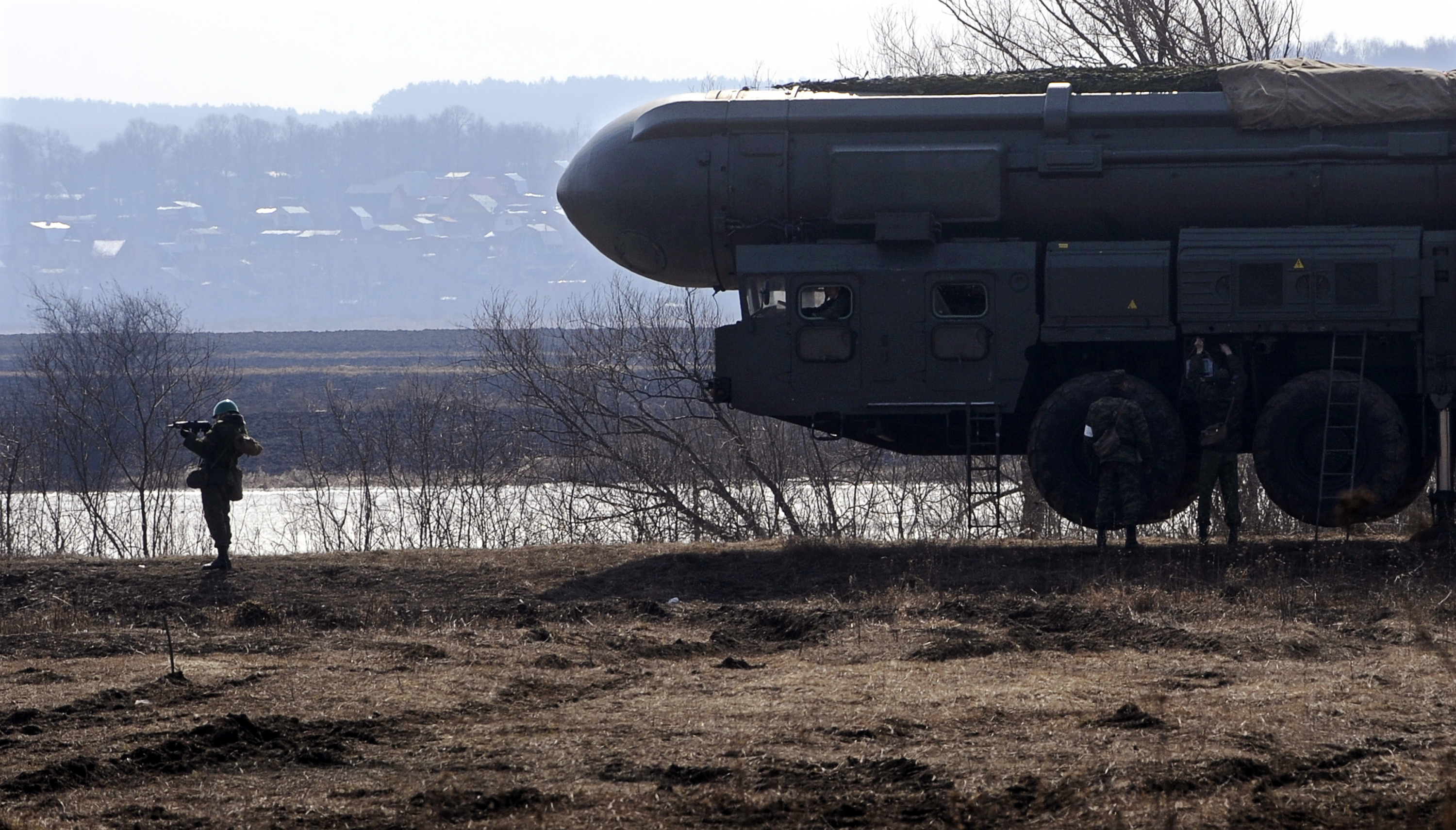Nuclear arms treaty faces collapse after failed US-Russia talks
The landmark nuclear treaty was signed by Ronald Reagan and Mikhail Gorbachev and led to nearly 2,700 short- and medium-range missiles being eliminated (NATALIA KOLESNIKOVA)
Geneva (AFP) – The survival of a key nuclear arms control treaty was cast further in doubt Tuesday after the US and Russia blamed each other for pushing the agreement to the brink of collapse.
Senior diplomats from both countries met in Geneva amid widespread concern over the fate of the bilateral Intermediate-Range Nuclear Forces Treaty, which successfully put an end to a mini-arms race after it was signed in 1987.
US President Donald Trump said in October that his country would pull out of the deal unless Russia stops violating it.
Russian President Vladimir Putin has threatened to develop nuclear missiles banned under the treaty if it is scrapped.
“The meeting was disappointing as it is clear Russia continues to be in material breach of the Treaty and did not come prepared to explain how it plans to return to full and verifiable compliance,” US Under Secretary for Arms Control and International Security, Andrea Thompson, said in a statement.
“Our message was clear: Russia must destroy its noncompliant missile system,” she said.
Thompson will be in Brussels on Wednesday, where she plans to brief NATO allies on the INF talks.
– US ‘fully’ to blame –
Russia hosted the negotiations at its mission in Geneva and Moscow’s delegation was led by deputy foreign minister Sergei Ryabkov.
Ryabkov said that if the deal is ditched, “responsibility for this fully and completely rests with the American side,” according to quotes published by Russian news agencies after the talks.
He added that said the parties had failed to agree on anything and Washington did not appear to be in the mood for more negotiations.
“We are forced to acknowledge that there is no movement forward,” Ryabkov was quoted as saying.
“We are ready for dialogue on the basis of equality, mutual respect, (and) without putting forward ultimatums.”
– 60 day deadline –
Last month, US Secretary of State Mike Pompeo said Washington would withdraw within 60 days from the Cold War treaty limiting mid-range nuclear arms if Russia does not dismantle missiles that the US claims breach the deal, which include Russia’s 9M729 system, also known by the designation SSC-8.
The INF was a bilateral treaty between the US and the then Soviet Union, so it puts no restrictions on other major military actors like China.
Pompeo has also said the US was not prepared to cede this advantage to a rival and noted that American concerns about Russian compliance pre-date the Trump administration.
Washington’s top diplomat has accused Russia of shrugging off dozens of warnings from senior US officials over the past five years about the SSC-8.
Ryabkov said Tuesday’s talks in Geneva centred on SSC-8 system but that US demands regarding the missile were unacceptable.
The landmark treaty was signed by Ronald Reagan and Mikhail Gorbachev and led to nearly 2,700 short- and medium-range missiles being eliminated.
NATO chief Jens Stoltenberg has described the INF as “arms control at its best” but warned last month that the collapse of the agreement appeared likely.
Disclaimer: This story is published from a syndicated feed. Siliconeer does not assume any liability for the above story. Validity of the above story is for 7 Days from original date of publishing. Content copyright AFP.


